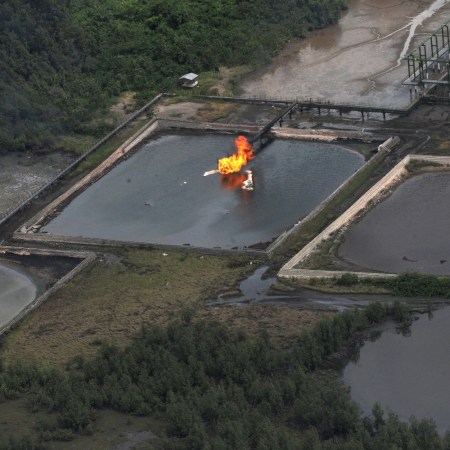According to a new study published in Biological Conservation, the prevailing theory that pandemic quarantines were beneficial to the environment isn’t actually true. In reality, the last 15 months have been more of a messy, mixed bag — one that conservation scientists will be sifting through for years as they try to figure out exactly what impact COVID-19 had on the planet.
As a team of researchers from Memorial University of Newfoundland and Labrador noted to The Atlantic, human interaction with the environment can be critical when it comes in the form of support. Consider: Humans spearhead invasive-species-control programs, fund restoration projects in parks, defend wildlife against illegal poaching practices and aid in animal migration patterns. Even the much-maligned “eco-tourist” indirectly brings wealth and resources to the conservation cause.
George Bailey’s role in It’s a Wonderful Life is a useful metaphor here; the world wouldn’t be magically better if humans weren’t in it. This planet — as much as we may cause it pain — counts on us for so much, and habitats suffered from a lack of attention during lockdown.
This is likely a surprise to people who saw viral videos of Venice’s canals looking pristine in the weeks after the initial global travel bans of March 2020. Facebook commenters at the time riffed poetically (and without any scientific basis) about what the world might look like if humans could learn to stay home. But few stuck around to hear the truth — the canals appeared cleaner, because less surface sediment was being kicked up by boat traffic.
But any tangible, positive changes to the environment — in response to lockdown — wouldn’t be so aesthetically digestible. That’s to say, the stuff that matters won’t show up in Instagram feeds. It’ll reveal itself in charts that monitor pollution — air, noise, oceanic. It’ll reveal itself as scientists take the next decade to study population numbers in everything from snow geese to pumas, and figure out how the pandemic affected their habitats.
It was a rare breath of fresh air last year, the idea that our confinement could serve two higher purposes — defeat the pandemic, and maybe put a dent into climate change along the way. We now know that isn’t the case, no matter how many planes have remained on the tarmac. But there’s hope here, too. A call to action. Conservation doesn’t have to be framed as a guilt-trippy, too-little-too-late pursuit. Humans aren’t a bunch of evil bastards who need to bugger off to another planet. We are doing good work to keep this one going, and after our year away, it needs us more than ever.
Thanks for reading InsideHook. Sign up for our daily newsletter and be in the know.


















